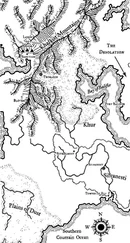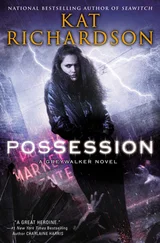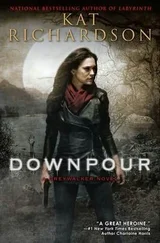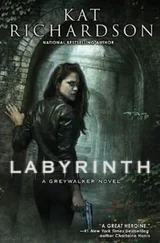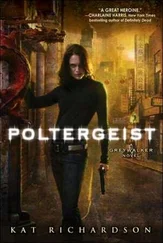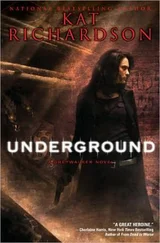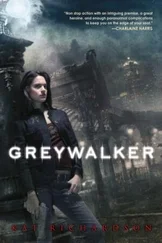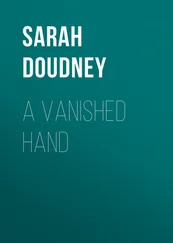“You know,” my mother suddenly declared, “your father was an odd duck.”
“Yeah, you said,” I replied, flipping open my pocketknife to cut the tape on the box of office paraphernalia. “If he was so weird, why did you marry him?”
I could almost feel her frown before she dismissed my hostile tone as flippancy.
“Why? Sweetie, I lived in Montana! I wanted out of that place so badly I’d have married a serial killer to get away. Your father—who adored me—had a professional degree and was heading somewhere far away from three hundred acres of cow flop. I have never been one to look gift horses in the mouth.”
“Until they clock you one,” I muttered.
“What was that?” she snapped, narrowing her eyes to glare at me from her perch.
“Seems kind of mercenary. If you thought he was a freak and only saw him as a meal ticket, why’d you stick around?”
“That’s not what I meant. I liked your father. But he had strange ideas sometimes and they got stranger after you were born. That’s when he started being mysterious and sneaking off. And what was I supposed to do with a baby to care for? I had to quit dancing when I got pregnant and I didn’t have a fancy education like he did. I had nothing!”
“Cry me a river.”
“Don’t smart mouth me, Snippet.”
“Then don’t play the martyr,” I replied, looking up. “You seem to be doing pretty well for a woman who claims she had nothing and was practically a prisoner at home with a baby. You did everything you could to have the career you wanted through me, and I don’t recall you being so broken up over my dad’s death that you didn’t find someone else to promote your dreams as soon as he was gone.”
She looked shocked. “Baby, how can you say that? Everything I did was for you! You needed help, direction, discipline. I got that for you. I got you a career. I got you a place !”
“You got me your place! You got me what you wanted, not what I wanted. I was a doormat. A doll for you to wind up and set onstage.”
“You were happy—!”
I barked over her, drowning her voice under mine. “About ten percent of the time. The rest was hell. Why do you think I ditched the dance gig at my first opportunity?”
“Because you’re an ungrateful brat!”
That was enough. I picked up the box and started toward the door. “Then I’ll take this and get my ungrateful self out of your house.”
She jumped down from the ladder and blocked the door, spreading out her arms in a rage of red fury. “Don’t you dare! Don’t you dare talk to me like that. And don’t you dare take my things!”
I fought to make my voice calm and reasonable. “Mother, it’s not yours. It’s Dad’s. And you clearly don’t want it. Nor do you seem to want me—at least not as I really am. You want a Shirley Temple doll.”
“I–I want a daughter. who won’t get herself killed by some idiot. I just want. ” She trailed off, shrugging helplessly.
“Hollywood. You want glamour and movie magic. I just want to go back to my job.”
“Oh! I just don’t understand you.” She stomped her designer-clad foot. “How can you do that? It’s such an awful job.”
“Not to me,” I replied. As I said it, I felt better, because it was true and I wasn’t unsure or bewildered for the first time since I’d entered her house. “I love doing what I do and I love being the person in charge of my life.” The box was poking into my hip, but I’d be damned if I’d put it down. “When I was a kid, I wasn’t in charge of anything. Even when I went to college, I was someone’s student or someone’s girlfriend or some director’s chorus girl. Someone’s whipping girl. Someone’s doll. I was Veronica’s daughter. I wasn’t Harper Blaine.”
My mother let out a scream and lashed her fists at the box, knocking it out of my hands. “How can you say that?”
The box went down like a sack of flour, sending up a cloud of paper and small objects and the smell of dust. Grey whorls spun from it as it struck the floor, gushing its contents from split sides.
“Look what you’ve done!” Mother shouted, sweeping her arms around.
I sighed and crouched down to pick up the pieces. A piece of paper glimmered like silver and floated in the air, drifting with unearthly languor toward the ground. I reached for it, feeling the buzz of Grey before I even closed my fingers on its yellowed surface.
It was old. Twenty-two years old, in fact. The cream-colored paper was stained with splatters of brown and the writing had faded to a dirty spiderweb scrawl. “There must be no more,” it read. “I’m sorry, Harper.” It was signed “Robert.” Not “Dad,” though it was clearly him.
I felt sucker punched once again—he wrote it to me? Signed his name as if I were an adult? Why? I’d been twelve! I gaped up at my mother. Unable to say anything else, I blurted, “You kept the suicide note?”
She glanced aside and shrugged. “Everything was just shoved in a box when we moved.”
“Bullshit. The cops would have kept it with the file unless you requested it. Why did you ask for it back?” And why didn’t I remember any of it? There must have been cops around, asking questions. They must have asked why he’d apologized to me, but I had no memory of any of that. It was as if there were a yawning hole around everything connected to my father’s death, and I could not recall anything of the time or the circumstances.
My mother flapped her hands in the air, as if distancing herself physically from the sheet of paper. “I didn’t ask for that. I just wanted the property they took. When I asked, they just gave me everything.”
“The gun, too?”
She didn’t reply; she just looked away, wan faced.
I pawed through the heap the box had spilled forth, stirring and sorting until I found it: an old-school Smith & Wesson revolver. It was still in an evidence bag, gritty and smeared. No one had cleaned it off. I felt sick and swallowed bile. But the gun had no glimmer of Grey to it. It was just a dead object, less active than most. The note was Grey, but not the instrument my father had used to end his life. That was strange.
“Was this his?” I asked.
My mother shook her head and didn’t look in my eyes. “No. Rob never owned a gun that I knew of.”
So where had it come from? I had a lunatic thought and asked, “Was it yours?” My mother had grown up on a cattle ranch, after all. She’d been around guns and horses and hard men from the cradle. She’d flipped out because I had a pistol on me, but she’d been more upset that I’d brought a gun into her house than that it was a firearm per se. Was she just being a dramatic hypocrite or did she have some particular problem with the idea of guns now? Or was it me and guns?
She sighed. “Yes. It’s mine.” Her shoulders slumped as if the admission had taken something from her.
“Ah.” Once the case was determined to be a clear suicide, and not a homicide, the cops had given her the note as part of his belongings. But they’d given her the gun because it was hers.
My mother’s gun. My father’s death. And a dead boyfriend telling me it was time to figure out how it all made me what I was. Cold tripped down my spine. This just kept getting freakier.
I stared into the mess around my feet, searching for other glimmers of Grey. A general haze of silver mist lay over the pile like dry-ice fog. There was a lot of stuff to sort through, but whether any of it would present a clue or not, as a body, it already told me Dad had had something Grey going on. I’d have to find him, too, if I could. I didn’t relish the idea of hunting through the Grey, through layers of time and memory and horrors, until I found his ghost—if he had one. I shuddered.
Читать дальше


